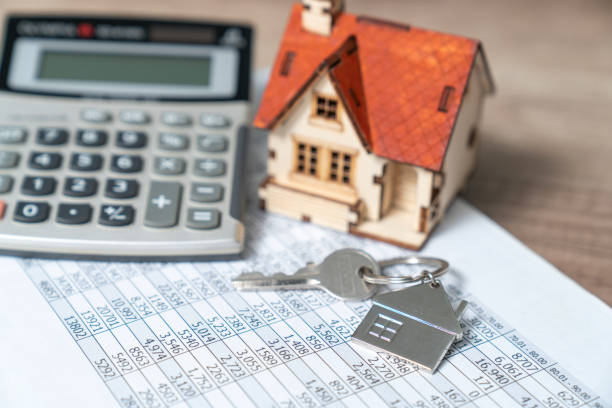Is mortgage forbearance a good idea? In the ever-evolving landscape of personal finance, circumstances can change unexpectedly, placing homeowners in challenging positions regarding their mortgage payments.
One option that gained significant attention, especially during times of economic uncertainty, is mortgage forbearance.
This financial lifeline offers a temporary reprieve from making regular mortgage payments, aiming to assist individuals facing short-term financial difficulties such as job loss, medical emergencies, or other unexpected setbacks.
While mortgage forbearance can provide much-needed relief, it’s crucial to evaluate its implications from a holistic perspective before deciding whether it’s a prudent course of action.
This article delves into the complexities of mortgage forbearance, examining its potential benefits, drawbacks, eligibility criteria, and alternative avenues, all of which are essential considerations for homeowners seeking to make informed financial choices aligned with their overall well-being and stability.
Also Read:
How Do Mortgage Lenders Make Money?
Can You Remove Someone’s Name from a Mortgage without Refinancing?
Is Mortgage Forbearance a Good Idea?
Mortgage forbearance, a temporary pause on mortgage payments, offers immediate relief to homeowners facing financial hardships like job loss or medical emergencies.
It can prevent immediate foreclosure and provide breathing room.
However, whether it’s a good idea depends on various factors.
Benefits include avoiding short-term default, maintaining a roof over one’s head, and allocating funds to other critical needs.
Yet, the deferred payments are typically due later, and interest might accrue during forbearance, increasing the overall cost.
Moreover, credit scores could be impacted, affecting future borrowing.
Forbearance eligibility and terms vary, often requiring communication with lenders.
Alternative options like loan modifications or refinancing might be more suitable.
Delving into individual financial situations, weighing the immediate relief against long-term implications, and understanding repayment plans are vital.
Overall, mortgage forbearance can provide a crucial safety net during crises, but its pros and cons need careful consideration.
Seeking advice from financial experts and exploring alternatives can guide homeowners toward the best choice for their circumstances.
Pros and Cons of Mortgage Forbearance
Mortgage forbearance entails both advantages and drawbacks that homeowners should carefully assess before deciding.
On the positive side, it offers immediate relief for individuals facing financial hardships like job loss or medical emergencies, preventing potential foreclosure.
This can provide crucial time to stabilize finances and focus on pressing needs.
However, the cons should also be weighed. While forbearance suspends payments temporarily, it doesn’t eliminate them.
Deferred payments are usually required later, leading to larger future payments.
Additionally, interest might accrue during the forbearance period, increasing the overall cost of the mortgage.
Credit scores could be negatively impacted, affecting future borrowing opportunities and interest rates.
It’s important to consider eligibility criteria, the duration of forbearance, and communication with lenders to understand the terms.
Exploring alternative options such as loan modifications or refinancing can provide more sustainable solutions.
Ultimately, the decision to opt for mortgage forbearance should align with the homeowner’s immediate needs and long-term financial goals, taking into account the potential benefits and risks involved.
Who Qualifies for Mortgage Forbearance?
Qualifying for mortgage forbearance depends on specific criteria set by lenders and government programs.
Generally, homeowners experiencing financial hardships such as job loss, medical emergencies, or other unforeseen circumstances are prime candidates.
Documentation that demonstrates the inability to make mortgage payments due to these hardships is often required.
Lenders may require proof of hardship, like termination letters or medical bills, to validate the request.
Additionally, homeowners should have an existing mortgage in place and be up-to-date with their payments before the hardship occurred.
It’s important to note that eligibility can vary based on the type of loan (FHA, VA, conventional, etc.) and the lender’s policies.
Government-backed loans might have different guidelines than private loans.
While forbearance aims to provide relief, homeowners should communicate with their lenders early and transparently to discuss their situations and explore available options.
Overall, individuals facing genuine financial difficulties due to unexpected events are more likely to qualify for mortgage forbearance.
However, understanding the lender’s requirements and engaging in open conversations is vital to assess eligibility and determine the best path forward.
Alternatives to Mortgage Forbearance
When facing financial challenges that impact mortgage payments, homeowners have alternative options to consider beyond mortgage forbearance.
Refinancing is a strategy that involves securing a new loan with more favorable terms, potentially reducing monthly payments.
This is suitable for those with a steady income and good credit.
Loan modification involves renegotiating the terms of the existing mortgage with the lender.
This could result in a lower interest rate, extended loan term, or other adjustments to make payments more manageable.
Selling the property might be a viable option, especially if the financial strain is long-term.
This allows homeowners to downsize or find more affordable housing.
Government assistance programs, like the Home Affordable Refinance Program (HARP) or the Home Affordable Modification Program (HAMP), offer solutions for homeowners with government-backed loans.
Creating a budget and seeking credit counseling can help manage finances better, potentially avoiding the need for forbearance altogether.
Each alternative has its own requirements and implications, and homeowners should carefully evaluate which aligns best with their financial situation and long-term goals.
Consulting with financial professionals can provide valuable guidance in making the right choice.
Also Read:
Can You Sell a House with a Mortgage?
Can You Have Two Mortgages? (Find Out Now)
Conclusion
In weighing the question of whether mortgage forbearance is a prudent choice, a nuanced perspective emerges.
While it provides immediate relief for homeowners facing financial crises, its long-term ramifications, including deferred payments, accrued interest, and potential credit score impacts, warrant thoughtful consideration.
Homeowners should evaluate their individual circumstances, explore alternative solutions, and engage in transparent communication with lenders.
Ultimately, the decision hinges on striking a balance between short-term relief and the preservation of long-term financial stability.
Seeking expert advice and understanding the intricacies of forbearance can empower homeowners to make informed choices aligned with their overall financial well-being.













